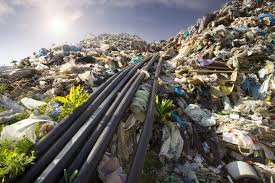Construction has officially begun at the New River RNG Project in Florida, a facility that will convert approximately 1,900 dekatherms per day of landfill methane to renewable natural gas (RNG). Fortistar and the New River Solid Waste Association (NRSWA) have collaborated on the project in Raiford, Florida. The site will collect naturally occurring methane from the NRSWA municipal solid waste landfill, convert it to RNG, It will then use the RNG to fuel natural gas vehicles via TruStar Energy, a Fortistar company. At full output, the New River facility will extract 2,500 standard cubic feet per minute of landfill gas and produce 5.1 million gas gallon equivalents of RNG per year. The overall project reduces CO2 emissions by 35,000 tons per year.
Also Read: Construction of new hospital for BayCare Health System in Florida, US begins
The New River RNG project includes the construction of a new unit that will utilize advanced, patented technology to treat landfill gas by removing carbon dioxide and other components to purify the gas and produce pipeline-quality RNG. The process involves proprietary membranes provided by Air Liquide. The new facility will also include a Vilter Single Screw Gas Compressor, which delivers longer life, higher reliability, and better energy efficiency.
This will be the first project to convert gas from a municipal solid waste landfill to RNG in Florida. According to the Environmental Protection Agency (EPA), landfill gas presents a major opportunity to capture and use a significant and often-wasted energy resource. Landfill gas, which is roughly 50% methane, is a natural byproduct of the decomposition of organic material in landfills.
Methane is a potent greenhouse gas that traps 28 to 36 times more heat in the atmosphere than carbon dioxide over a period of a century. The EPA also noted that municipal solid waste landfills are the third-largest source of human-related methane emissions in the US, accounting for 15.1% of these emissions in 2018. The agency’s data also highlights the transportation sector as one of the largest contributors to US greenhouse gasses emissions accounting for 28% in 2018.

Leave a Reply